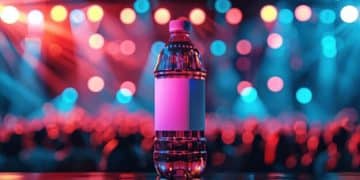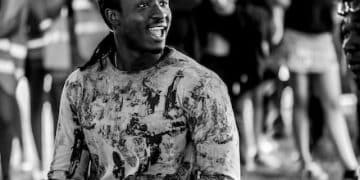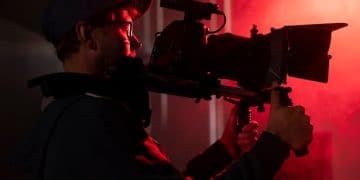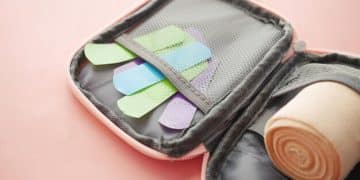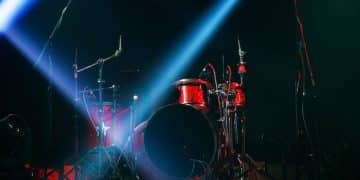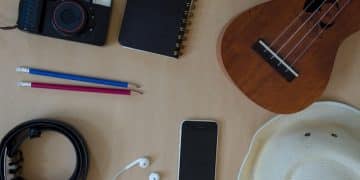Concert Aftercare: 3 Proven Strategies to Recover Quickly After a Show
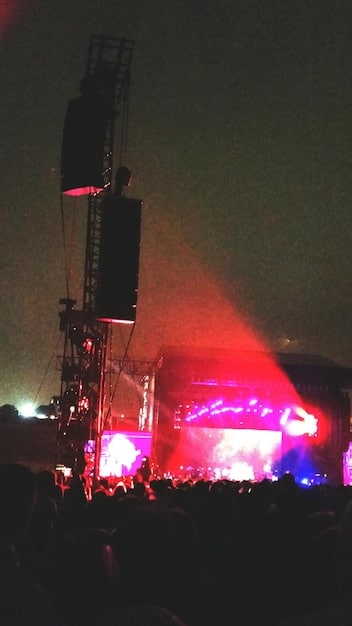
Concert aftercare involves implementing strategies to help your body recover from the physical exertion, auditory strain, and potential dehydration experienced during a show, ensuring you’re ready for your next event.
Attending a concert is exhilarating, but the experience can take a toll on your body. Concert aftercare: 3 proven strategies to recover quickly after a show is essential to bounce back effectively.
Understanding the Physical Demands of Concerts
Concerts are more physically demanding than many people realize. From standing for hours to dancing and singing along, your body undergoes a significant amount of stress. Understanding these demands is the first step in effective concert aftercare.
The combination of loud music, bright lights, and large crowds can also contribute to sensory overload, which can leave you feeling drained and exhausted. Proper preparation and recovery are vital for mitigating these effects.
Physical Exertion and Energy Depletion
Concerts often involve prolonged periods of physical activity. Dancing, jumping, and even just standing for extended periods can deplete your energy reserves and strain your muscles.
Auditory Overload and Sensory Stress
The intense sound levels at concerts can lead to auditory fatigue and potential hearing damage. Additionally, the visual stimulation and crowded environment can contribute to sensory stress.
- Hydration: Dancing and singing cause dehydration, so replenishing fluids is crucial.
- Muscle Recovery: Stretching and gentle exercises can alleviate muscle soreness.
- Rest: Adequate sleep helps your body repair and recover.
Recognizing these physical demands allows you to tailor your aftercare strategies to address specific issues, ensuring a faster and more complete recovery.
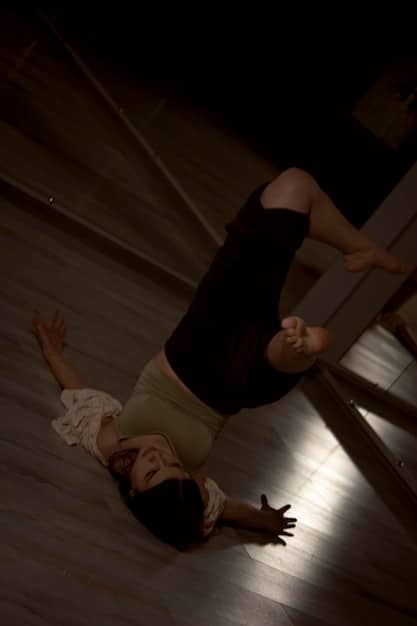
Strategy 1: Rehydration and Nutrition Replenishment
Rehydration and nutrition are fundamental to concert aftercare. Replenishing fluids and nutrients lost during the show helps your body restore its balance and energy levels.
Dehydration can lead to fatigue, headaches, and muscle cramps, while nutrient depletion can slow down the recovery process. Addressing these issues promptly is key to a speedy recuperation.
Hydration Techniques
Rehydrating involves more than just drinking water; it also includes replenishing electrolytes lost through sweat. Incorporating electrolyte-rich drinks is a smart move.
Nutrient-Rich Foods for Recovery
Consuming nutrient-rich foods helps repair muscle tissue and restore energy levels. Focus on easily digestible options that provide a good balance of carbohydrates, proteins, and healthy fats.
- Electrolyte Drinks: Sports drinks or coconut water can help replenish essential minerals.
- Fruits and Vegetables: Bananas, oranges, and leafy greens provide vitamins and antioxidants.
- Lean Proteins: Chicken, fish, or tofu can aid in muscle repair.
By prioritizing rehydration and nutrition, you can effectively combat the physical strain of concerts and support your body’s natural recovery mechanisms.
Strategy 2: Muscle Recovery and Relaxation Techniques
Muscle recovery and relaxation techniques are crucial for alleviating soreness and stiffness after a concert. These strategies help reduce inflammation, improve circulation, and promote overall well-being.
Whether you’ve been dancing all night or simply standing for hours, your muscles will likely feel the strain. Implementing targeted recovery methods can make a significant difference in how quickly you bounce back.
Stretching and Gentle Exercises
Stretching helps improve flexibility and reduce muscle tension. Gentle exercises, such as yoga or light cardio, can enhance circulation and promote healing.
Relaxation Techniques for Stress Reduction
Relaxation techniques, such as deep breathing, meditation, and massage, can help lower stress levels and alleviate muscle soreness. These practices promote a sense of calm and well-being.
- Foam Rolling: Applying pressure to tight muscles can release tension and improve flexibility.
- Warm Baths: Soaking in warm water with Epsom salts can soothe sore muscles.
- Massage Therapy: Professional massage can target specific muscle groups and promote relaxation.
Incorporating these muscle recovery and relaxation techniques into your concert aftercare routine can significantly reduce discomfort and speed up your body’s recovery process.
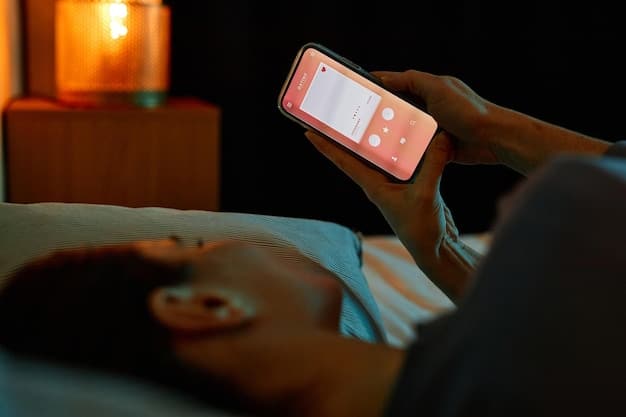
Strategy 3: Auditory Rest and Sleep Optimization
Auditory rest and sleep optimization are essential for recovering from the sensory overload experienced at concerts. These strategies help reduce auditory fatigue, improve sleep quality, and promote overall cognitive function.
The combination of loud music and bright lights can strain your auditory and nervous systems, leading to fatigue and potential hearing damage. Prioritizing rest and sleep is crucial for mitigating these effects.
Minimizing Auditory Stimulation
Reducing exposure to loud noises and creating a quiet environment can help your ears recover from the intense sound levels at concerts. This includes avoiding headphones and noisy environments.
Optimizing Sleep Environment and Habits
Creating a comfortable and conducive sleep environment can improve sleep quality and duration. This involves optimizing room temperature, reducing light and noise, and establishing a consistent sleep schedule.
- Earplugs: Using earplugs at future concerts can reduce the risk of hearing damage.
- White Noise: Utilizing white noise machines or apps can mask disruptive sounds and promote relaxation.
- Consistent Sleep Schedule: Going to bed and waking up at the same time each day helps regulate your body’s natural sleep-wake cycle.
By focusing on auditory rest and sleep optimization, you can effectively address the sensory strain of concerts and ensure a faster and more complete recovery.
“`html
| Key Point | Brief Description |
|---|---|
| 💧 Rehydration | Replenish fluids and electrolytes lost during the concert. |
| 💪 Muscle Recovery | Use stretching and relaxation techniques to alleviate muscle soreness. |
| 🎧 Auditory Rest | Minimize exposure to loud noises to allow your ears to recover. |
| 😴 Sleep Optimization | Ensure a comfortable sleep environment and consistent sleep schedule. |
“`
Frequently Asked Questions
▼
Begin rehydrating as soon as possible after the concert. Start with water and then incorporate electrolyte-rich drinks to replenish lost minerals. The sooner you start, the better your body can recover from dehydration.
▼
Opt for foods rich in protein and carbohydrates to aid muscle repair and energy restoration. Good choices include lean meats, fish, eggs, nuts, and complex carbohydrates like whole grains and sweet potatoes.
▼
Aim to rest your ears for at least 16-24 hours after a concert. Avoid loud environments and the use of headphones during this time to allow your auditory system to recover and prevent potential hearing damage.
▼
Focus on gentle stretching exercises that target major muscle groups such as legs, back, and shoulders. Yoga, Pilates, or simple stretches held for 20-30 seconds each can help reduce muscle tension and improve flexibility.
▼
Create a relaxing sleep environment by ensuring the room is dark, quiet, and cool. Establish a consistent sleep schedule, avoid caffeine and alcohol before bed, and consider using relaxation techniques like deep breathing or meditation.
Conclusion
By implementing these concert aftercare strategies—rehydration and nutrition, muscle recovery and relaxation, and auditory rest and sleep optimization—you can ensure a quicker and more complete recovery. Prioritizing these techniques will help you bounce back faster and fully enjoy your next live music experience.
